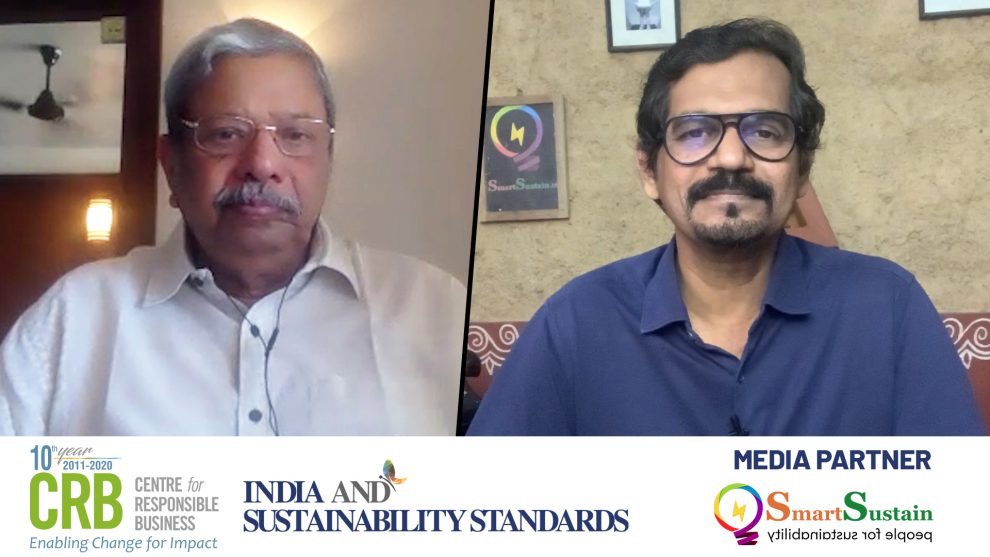Doing good for stakeholders is more important than making a profit
INDIA AND SUSTAINABILITY STANDARDS CONFERENCE by CENTRE FOR RESPONSIBLE BUSINESS
27th- 29th October 2021
Register here
Dr OP Agarwal, the CEO of the World Resource Institute, is involved with public policy issues related to urban development, poverty alleviation, capacity building, governance and environment and so his involvement with CRB in their initiatives is all the more relevant and important.
He was the World Bank’s global Urban Transport Adviser, in Washington DC, and led the knowledge development and capacity building function for urban transport and advising on several projects. Dr Agarwal also chaired the U.S. Transport Research Board’s Committee on Transportation in Developing Countries.
Smart Sustain, as a media partner of CRB’s flagship event 2021 with the theme: Accelerating and Reinforcing Transformative Change for Societal Resilience, had a high-yielding conversation with Dr OP Agarwal, the CEO of WRI on the eve of the event.
Count It, Change It, and Scale It – is the strategic approach of WRI to measure success through real changes implemented. Their work gets organized around seven global challenges: Food, Forest, Water, Energy, Climate, Ocean and Cities. Business, Economics, Finance and Equity are the four centres which analyse the progress made in these 7 areas to make sure of achievements.
According to Dr Agarwal, everything on this planet is one system in which different systems interact. WRI has segregated these systems into the earlier mentioned 7 challenges with cross-cutting themes of business and economics which try to bring these 7 challenges together. Having regular meetings to exchange information helps WRI to coordinate well to see the changes happening or what they have achieved, he told Manjunath Gangadhar of Smart Sustain.
Dr Agarwal has a strong message for companies: Sustainability is good for businesses. Doing good for stakeholders is more important than making a profit. All businesses should realise and recognise these concepts which are relatively new.
Pointing to the fragmentation in the Indian system of governing, Dr Agarwal emphasized the importance of bringing these fragments together, which is the prime focus of WRI. He highlighted the role of Niti Ayog in bringing these fragments together.














Add Comment